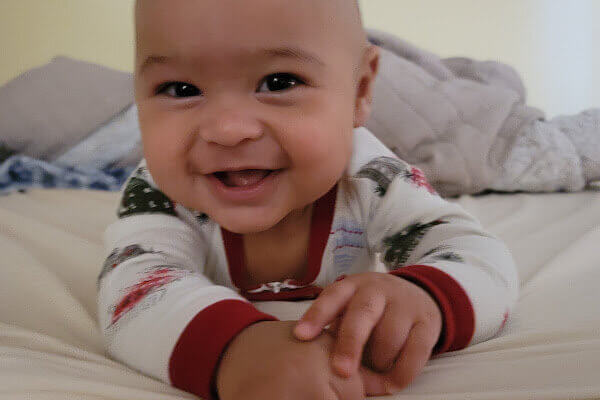
We all hope that our newborn’s are born healthy and happy. In order to ensure that they are, all states screen newborns for certain defects. These conditions cannot be seen in the newborn, but can cause physical problems, mental disabilities and, in some cases, death.
What Do the Tests Look for?
Here is a description of some of the conditions and the available treatments.
PKU (phenylketonuria)
Babies with this disorder cannot process a substance called phenylalanine that is found in almost all food. Without treatment, phenylalanine builds up in the bloodstream and causes brain damage and mental retardation. When PKU is detected early, mental retardation can be prevented by feeding the child a special diet. All states and U.S. territories screen for PKU.
Hypothyroidism
Babies with this disorder have a hormone deficiency that slows growth and brain development. If it is detected in time, a baby can be treated with oral doses of the hormone to permit normal development. All states and U.S. territories screen for hypothroidism.
Galactosemia
Babies with this disorder cannot convert galactose, a sugar present in milk, into glucose, a sugar that the body uses as an energy source. Galactosemia can cause death in infancy, or blindness and mental retardation. The treatment for the condition is to eliminate milk and all other dairy products from the baby’s diet.
Sickle Cell Anemia
This inherited blood disease causes bouts of pain; damage to vital organs such as the lungs, kidneys and brain; and, sometimes serious infections and death in childhood. Early treatment can prevent some of the complications of sickle cell anemia.
Congenital adrenal hyperplasia (CAH)
Babies who have this group of disorders are deficient in certain hormones. CAH affects genital development and, in severe cases, can disturb kidney function and cause death. Lifelong treatment with the missing hormones suppresses the disease.
Hearing loss
Early detection of hearing loss allows the baby to be fitted with hearing aids before 6 months of age. This early intervention helps prevent serious speech and language problems.
The March of Dimes recommends that all newborns be screened for 30 disorders including hearing loss.
How Are the Tests Done?
Most of the tests use a blood specimen taken before the baby leaves the hospital. The baby’s heel is pricked to obtain a few drops of blood for laboratory analysis. The same blood sample can be used to screen for a number of disorders.
Usually, the baby’s blood sample is sent to a state public health laboratory for testing. The health care provider responsible for the infant’s care receives the results.
Hearing loss tests measure how a baby responds to sounds. The tests use either a tiny, soft earphone or microphone that is placed in the baby’s ear. If these tests show abnormal results, the baby may need more extensive testing to see if he or she has hearing loss.
What Should I Do if My Baby Is Diagnosed With One of the Conditions?
Your baby may need treatment at a specialized pediatric center. It is essential for your child’s healthy development to follow the recommendations of his or her doctor.
For More Information
Find out which tests are routinely done in your state by asking your health care provider or state health department. You can also visit the Web site of the National Newborn Screening and Genetics Resource Center (NNSGRC).
See which tests should be given to your newborn, and what to be on the lookout for.



